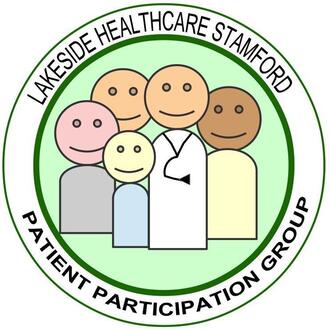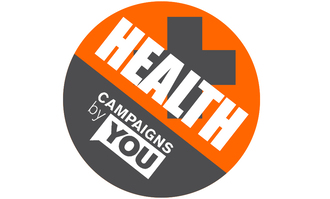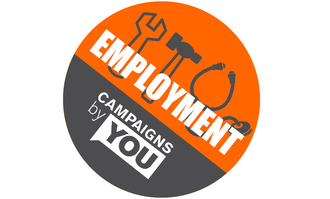-
END THE POSTCODE PREGNANCY LOTTERY: ALLOW ALL EXPECTANT MOTHERS TO BRING A PARTNER.All NHS Trusts across England should allow birth partners to support mothers throughout their whole pregnancy and birth. The government has made it clear that during the coronavirus crisis, birth partners are allowed to be present during pregnancy appointments and the birth. But still, a huge number of trusts in England are preventing birth partners from attending all of the big moments in the pregnancy: the 12-week scan, the 20-week scan and the duration of labour. This means that some mothers are going through birth alone, finding out that they’ve suffered a miscarriage, or that something is wrong during the pregnancy, with no one there to support them. No one should have to go through that alone. It shouldn’t matter where you live in the country - every mother should have access to the same support during pregnancy and birth.1,558 of 2,000 Signatures
-
Better Primary Care for Stamford “Save St Mary’s”Lakeside Healthcare Group unexpectedly announced on Wednesday 16th September 2020 that St Mary’s surgery will close 1st December 2020. This has triggered considerable public disquiet and discontent, not only about this decision but also about the current quality of Primary Care delivery in Stamford. It has become clear that the Primary Care Committee of Lincolnshire Clinical Commissioning Group [CCG] who contract with Lakeside has not approved the closure and will need to be satisfied that patient needs can be met with the appropriate level of quality care. The Patient Participation Group calls upon Lincolnshire CCG to work in conjunction with South Kesteven District Council [SKDC] to develop a strategic plan for the delivery of Primary Care in Stamford that will be fit for the next 20 years in line with the Local Plan. This plan should be based on a thorough “needs-based analysis” reviewing the town and surrounding villages' current and future demography, the distribution & growth of population, its traffic flows and projections of future healthcare needs as defined in the NHS long term plans … and whether it is the public’s best interests for there to be a monopoly primary care provider. This cannot be left to Lakeside alone who by their rushed and unplanned attempt to close St Mary’s have already shown they do not possess the required competence to lead on such an important subject.1,709 of 2,000 SignaturesCreated by Secretary LHSPPG
-
Lakeside Healthcare in Stamford provide the service you are paid forLakeside makes the following claim: "Lakeside Healthcare is a new type of NHS general practice which builds upon and celebrates all that is great about traditional primary care services. We are local surgeries run by doctors, nurses and associated staff who know their patients and care deeply about the quality of health provided in their communities." Our experience is very different. Phone calls take a very long time to be answered, and it is between very difficult and impossible to get a face-to-face appointment.240 of 300 SignaturesCreated by Kenneth Burke
-
Stop fertility patients being penalised due to CovidSo here is our story and why i feel strongly enough about this to start a petition. Myself and my husband have been trying for a child now for close to two and a half years, after a year and a half we were referred to a fertility specialist in Glasgow and we got our first appointment in Oct 2019, we saw Dr Sastry who was wonderful and extremely helpful, we were advised however that we could not go on the list for IVF until we had been trying for at least 2 years which we expected so this was fine. We had some scans done to check that everything was ok and it was found that i have what looks like a cyst on one ovary and also on the other side what could be a cyst or a possible blockage of a tube they couldn't tell so at this point we were advised the best thing to happen would be surgery to check, we were fine with this and were placed on a waiting list. There were some other conditions for the IVF too i had to lose weight and get my BMI under 30, this was also expected so i got to work on losing the weight. At this point we were so relieved that things were moving forward and we had a plan, for anyone going through struggles with fertility its easy to feel lost and like your getting no where. All was going well we received a date for surgery the 31st March and we received a letter for our next appointment with the fertility specialist for April this would be to get weighed and be put on the IVF waiting list. Then Covid struck and everything fell apart, not just for us but for every other couple waiting for fertility treatment. A week before my surgery i got the call that it was cancelled, it was expected but still a shock and upsetting and then in came the letter that the appointment at the fertility clinic was postponed then shortly after cancelled. I was devastated, id lost the 22lbs to get my weight where it needed to be and id been mentally preparing myself for the next stage of our journey. Luckily we contacted our specialists secretary who advised our specialist that i'd lost the weight and she agreed to add us to the waiting list. Now to why do a petition? In Scotland if your under 40 you get 3 rounds of IVF on the NHS if your 40 as long as they think your chances are good, and you have a good egg reserve etc you will get 1 round, so, what about those people including ourselves that would of had time for 2 or 3 rounds but due to Covid will only get 1, what about those of us waiting on surgery whose surgeons aren't doing gynecological surgery at the moment but when you ask about being referred to a surgeon who is they suggest they send you materials on having it done private? Why should couples be penalised for delays outwith their control? This petition is for allowances to be made for those couples effected by the delays, if someone turns 40 before treatment can be given however they are in good health and have a healthy egg reserve why shouldn't they receive the 2 or 3 rounds they would of had if Covid hadn't hit. My specialist advised that the best way to get the government to look at this was to shout about it, so here i am, shouting, please shout with me.330 of 400 SignaturesCreated by Rebecca Scott
-
Come clean about PPE and publish all the contractsMany hundreds of frontline healthcare workers have contracted Covid-19 and died. Details of the PPE fiasco that left them further exposed are now starting to emerge. The Government has committed £15 billion for buying PPE. Shockingly, three of the biggest beneficiaries so far are companies specialising in pest control, a confectionery wholesaler and an opaque family fund owned through a tax haven. Now, the Government has admitted that 50 million masks that they purchased from the opaque family fund “will not be used in the NHS” because of safety concerns. It means PPE which should be delivered to the NHS to protect frontline staff is now piled up in warehouses gathering dust. Why did the Government award vast amounts of public money to companies like this? And how many more of these contracts have failed to deliver PPE to the NHS? We don’t know. The Government is ignoring the usual rule that contracts should be published within 20 days. To prevent future PPE procurement failures and protect taxpayers’ money we need to uncover the truth of what really happened. Will you sign the petition and call on the Government to publish the PPE contracts?175,405 of 200,000 Signatures
-
Save NHS Dentistry in Northern IrelandNHS services will be impossible to provide under the new Coronavirus Regulations, and those already in poverty will be hit hardest. New regulations requiring dentists to vacate surgeries for one hour after carrying out ‘aerosol generating procedures’ such as drilling, fillings and root canals, will drastically reduce the number of patients they can see, and make it financially impossible for surgeries to offer treatment under the NHS. Those in poverty often delay treatment due to the cost of dental charges. Without a good NHS system their oral health, including diagnoses of serious conditions like mouth cancer is going to suffer and their general health will follow suit.7,309 of 8,000 SignaturesCreated by Nicola Browne
-
Make secondary scans before diagnosing miscarriage mandatoryEarly October 2019, I'd recently found out I was pregnant. Not planned and I'm not ashamed to say that my plan going forward at that time was uncertain. Shortly after, I began experiencing bleeding. Sometimes very light, sometimes nothing, sometimes heavy. Although I was aware that some bleeding in pregnancy can be totally normal, I was concerned it wasn't normal for me, having had 3 healthy pregnancies with no early bleeding. I spoke to my EPU and was referred for a scan. By the time my appointment arrived, I'd been bleeding on and off for 12 days. Firstly I was greeted by a lovely trainee GP who I spoke with, explained my choices were uncertain but I had suspected a miscarriage. I made it clear that had that been the case, I would like to progress with the surgical management option to recover, at least physically from the ordeal as quickly as possible. She agreed. I was then scanned by another lady. My scan confirmed something I didn't expect. Twins. I was shown the screen and immediately felt a wave of guilt that I'd even considered termination. Seconds later, the sonographer told me One twin is significantly smaller than the other, I'm sorry but twin A has no heartbeat, I'm going to move on and check twin B' Seconds felt like hours. Then, ' twin b hasn't either. I'm sorry but your pregnancy isn't viable' At this point, my ears were ringing I couldn't process the information I'd been told. Twins. No heart beat. Neither have heartbeats. Non viable pregnancies. I felt like I was underwater while the world above continued. I was escorted in to the room next door, back to the trainee gp I'd seen earlier. The dr placed my scan photos, faced up on the table, clearly visible. I asked if I could take them, i was told no, due to data protection. But I could take photos while she had her back turned and pretend it hadn't happened. Still to this day, I'll never understand why photos of my babies would cause a data protection breech... I was handed a few forms to sign and a brown bag containing medication. At this point I reminded them of my want for surgical management route to be informed that because I'd miscarried, I would need to go to gyne and could be waiting days. She handed me the 1st tablet after explaining that she'd given medical management to 'help me out' I was informed I needed to take the 1st tablet in front of them and then I was free to leave to continue my treatment at home, 24 hours later. I walked out of the centre and I wasn't quite sure I even understood what just happened. I went home and looked at the pictures I had taken of my scan. Twin 1 measured 4.6mm and twin 2 measured 4.7mm. Going by my LMP, 5th September 2019, I was 6 weeks and 6 days pregnant. Mentally, I struggled. The days rolled in to nights, I led awake rearranging sernarios in my head. Forums, Google search and information pages became my life. I obsessed over it. Something didn't add up. I was told during my scan that one twin was 'significantly smaller than the other' My scans confirm that there was .1 of a mm between them. After my nights and days of scanning the net, I was also aware that there are many cases where mothers attend scans and it's simply been too early to see a heartbeat and they attend a week or so later to see a healthy flicker on the screen. Then it clicked. My babies were too small to confirm miscarriage. But it was too late. The misdiagnosis had already been given and the medication to expell them from my body had been taken. I began to explore the guidance set out by NICE. They state if the Crown to rump length is less than 7mm and no fetal heart beat is detected, perform a second scan a minimum of 7 days later, before a miscarriage can be confirmed. In my case, this did not happen. I was not offered a re scan. I was not given the opportunity to let them develop. My choices were taken from me. Because, I trusted the guidance of a professional. A professional that do not choose to follow the guidelines of NICE that day. For what reason, I have no idea. But there will never be an acceptable reason to justify what happened. I want to change that. I want to make it mandatory that in early pregnancy, if a heartbeat isn't detected and there is a possibility that a heartbeat is not yet established, health care professionals should ensure expectant mothers should be called back, before a diagnosis of a miscarriage can be given. Hospitals are given guidance to follow. But what I still struggle with on a daily basis is a prime example of why the change is so important. Living with the uncertainty of whether my pregnancy was a healthy one or a non viable one is something I'll have to live with for the rest of my life. That could of been prevented by simply calling me back for another scan. Please help me change 'guidance' to mandatory to ensure many more women don't have to go through the experience that I, and no doubt so many others have had to. Thank you.141 of 200 SignaturesCreated by Emma-Jane Price
-
Full Abortion Care in Northern IrelandThe Department of Health in Northern Ireland are refusing to commission abortion services, despite regulations now in place which make abortion provision a legal requirement. This means that only limited abortion access has been provided and too many women and pregnant people have been refused treatment or forced to travel to receive treatment. The Minister for Health has also stated that limited access is an ‘interim’ measure, but there has been has been NO attempt by the Department to provide the abortion provisions that we need. We have the law. Now we need the access.209 of 300 SignaturesCreated by Nicola Browne
-
SIGN NOW: Everyone has a right to safely access healthcare in the UKA man, known only as Elvis, who had lived in the UK for 10 years and worked as a cleaner, died at home of coronavirus, after having severe symptoms for two weeks. He did not seek help from the NHS because he was scared he’d be landed with a huge, unaffordable bill for his treatment, or that he would be reported to immigration authorities. The Government’s hostile immigration policies mean that many migrants are too afraid to access the NHS, even if they have coronavirus symptoms. The NHS was founded on the principle of universal healthcare, that everyone could access for free, regardless of background, nationality, or ability to pay. The Hostile Environment means this is no longer the case. No one should avoid healthcare because they are scared of the debt they’ll incur, or that they’ll be deported, especially not during a public health crisis like Covid-19. The nature of coronavirus means that we are only as protected as the least protected amongst us. A recent report published by Migrants Organise, Medact, and the New Economics Foundation, told stories of many migrants avoiding accessing healthcare services during coronavirus because they fear being charged, or facing immigration enforcement. It clearly shows that adding Covid-19 to the list of conditions exempt from charging is not enough to ensure people can access care. There is widespread and growing outrage over the policy. Seven health institutions in the UK, including the British Medical Association, 100 civil society organisations and community associations, and 60 MPs, have all demanded that the government ends NHS charging for migrants and data sharing with the Home Office. It’s time for everyone to join this call for the Government to take emergency action to end NHS charging and data sharing during the coronavirus crisis. To defeat coronavirus we must stand together, support everyone in our communities, and ensure the NHS is free and safe for all who need it. It is our NHS. It should treat #PatientsNotPassports.30,251 of 35,000 SignaturesCreated by Patients Not Passports
-
Update the Opticians Act or introduce a law to include a minimum 45 minutes for all eye examinationsMany Optician practices across the UK carry out each eye examination at an average time of 20 minutes per patient or a staggering 10 minutes in some cases. These are unacceptable time scales and they place patients in danger as missed pathology can lead to serious eye disease and can sometimes lead to other serious health conditions. The practitioners who carry out these eye exams are also putting their careers at risk by agreeing to work to these time scales. Missed pathology will almost certainly lead to fitness to practise (FTP) hearings with the GOC, and the potential for erasure from the optician’s register is a real concern for all practitioners. The GOC’s overarching objective is the protection of the public (Opticians Act Section 1). However, they have not yet addressed this time scale issue. The GOC Registrant Survey 2016 states: “One area identified by participants as having an effect on patients was the length of the sight test. Some participants explained that employers and businesses can put pressure on registrants to conduct as many eye tests as they can in a day. This can result in registrants not being able to always spend enough time with patients. Participants also mentioned that they were under pressure to achieve certain “conversion rate” targets (i.e. to ensure that an eye test with a patient leads to the patient then buying glasses or contact lenses within the store).” We also believe that The College of Optometrists, the Association of Optometrists (AOP) and the Association of British Dispensing Opticians (ABDO) have collectively failed to provide clear and concise guidelines on this matter. Many people working within the industry feel that the answers possibly lie with the major High Street Opticians and their influence on all the bodies mentioned above, which surprisingly includes the governing body (GOC). The vast majority of these representative bodies, if not all, have at least one board member affiliated with a national high street optician chain. This is seen by many as a conflict of interest. A recurring question amongst practitioners is, how are these board members influencing these representative bodies behind closed doors? Every high street optical chain is reliant on high patient volume within their business models. Reduced exam times and the absence of law in this area, means more patients can be seen in each clinic. Which is great for business, profits and turnover, but not so great for the quality of patient care and it’s certainly not beneficial for the well-being of the practitioners that carry out the eye exams. Unfortunately many practitioners who work within these high street businesses are ‘performance managed’ to work to these time scales. Failure to adhere to the current time scales leads to practitioners being ‘performance managed’ out of the businesses. This unacceptable behaviour highlights the profits before patients syndrome, which has been like a cancer that’s spread through the profession over the years. This conveyor belt system leads the public to view practitioners in this field as glasses sellers or salesmen. Whereas the truth is far from this view. A Journal of Optometry study (https://www.ncbi.nlm.nih.gov/pmc/articles/PMC4911451/) found that Optometrists working in Multiple Optician chains were twice as likely to refer false positives to the Hospital Eye Service (HES) compared to Independent Optician practices. When you factor in the shortage of Ophthalmologists (Centre for Workforce Intelligence, 2014) working in the HES. False positive referrals can have a significant impact on the HES. The same study went on to claim; “Myint and colleagues found that lack of TIME to repeat measurements, or remuneration for doing such, as the most commonly reported barriers to effective glaucoma detection in the UK”. The study also found that after the introduction of the new Scottish NHS GOS contract which allows for longer exam times, “there was a significant reduction in false positive referrals and a significant increase in true positive referrals.” An example of the effect this can have on the HES: (https://www.aop.org.uk/ot/professional-support/health-services/2019/11/11/glaucoma-patient-who-went-blind-receives-three-point-two-million-pound-compensation) The AOP’s own “Optometrists Futures Survey” from October 2018 (section 7.3.2) clearly highlights the need for changes to increase the exam times. Almost two years have passed and this point has yet to be addressed by the AOP. The Optical Workforce Survey (2015), Lead by The College of Optometry, states the following regarding the pressures on the HES: “Since 2004, the Department of Health (DH) has been trying to encourage the delivery of more routine and minor emergency eye care outside hospital settings in community optical practices. The aim is to free up hospital capacity to cope with increasing demand from both the ageing population and new technologies such as treatments for wet age related macular degeneration (The King’s Fund, 2009).” This highlights the urgent need to reduce false positive referrals caused by the commercial pressures which impose inadequate examination times on practitioners. The current pandemic also highlights the importance of longer eye exam times. The use of PPE, disinfection and social distancing measures will require added time to carry out eye exams once the suspension on routine sight testing has been lifted. There is also the lingering prospect of potential monopolies being formed, (https://www.financierworldwide.com/essilorluxottica-and-grandvision-agree-8bn-merger#.Xs-8WxbTWEc). This will no doubt effect patient safety as the aim of increasing commercial revenue will take precedence. By signing this petition you will help safeguard patients and practitioners as well as highlight the points made in this petition to the government.654 of 800 SignaturesCreated by Raz Yakub
-
£500 grant to all social and childcare workers In WalesSocial and childcare workers have worked tirelessly during the Covid Outbreak. Care homes have been a significant source of infection, with many social care staff not going home. Some live in caravans and some risk their families contracting the virus. The majority of Social Care staff are on National Minimum Wage. The WELSH government made the statement, they should stick to it. Many professionals would have been unable to go to work without childcare staff and for this reason, the payment should extend to them too.139 of 200 SignaturesCreated by Matthew Bailey
-
Immigration Health SurchargeToday the government confirmed that is pressing ahead with its plans to impose the Immigration Health Surcharge (IHS) which must be paid by non-EU workers on long-term visas; this includes all non-EU doctors, nurses and health workers who are working in the NHS and care services. Someone who wishes to come to work in the UK has to pay this fee before they can progress their visa application - if it is not paid their application will be automatically rejected. The IHS must be paid once a visa application has been submitted online ; a simple redirect in the booking system takes you to the payment page. It is calculated with reference to the number of years someone wishes to remain in the UK, and in January 2019 rose to £400 per year (pro-rata) per applicant - it will shortly rise yet again to have £600. There are no discounts for dependants, including children, all of whom must pay the full IHS. This government is seeking to financially damage the workers who it stands and applaudes each week. These are workers who are giving their all to the people of this country - they should be paid properly for this and not penalised for using the institution that they wish to serve. This country is reliant on overseas health workers and yet this government is trying to deter them from coming to work here.179 of 200 SignaturesCreated by Lucy Morton
Hello! We use cookies to improve your experience by providing insights into how the site is being used. Find out more.












